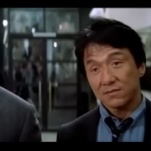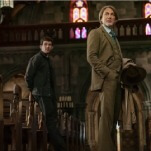D. Graham Burnett: A Trial By Jury

An old joke proclaims that people aren't tried by a jury of their peers, but by 12 people too stupid to get out of jury duty. When historian D. Graham Burnett was called to serve in January 2000, he half-expected to be excused because of his profession, having heard that attorneys shy away from intellectuals. Instead, he was appointed foreman of a panel reviewing a murder case, and when deliberations began, he coordinated the contentious and often irrational musings of 11 strangers from diverse quarters of New York City. Predisposed to analyze his experiences, Burnett used the opportunity to contemplate the respective meanings of justice and law, and he's assembled his observations in A Trial By Jury, a compact book of reportage which plays as a courtroom drama, a philosophical treatise, and an engaging self-examination. Burnett represents himself as a thoughtful type, prone to walking to court through a different ethnic neighborhood each day, and keen to note how his scholarship and sensitivity mean nothing to the coldly efficient bureaucracy of the judicial system. Whether or not the author has painted a true picture of himself, he's a narrator designed to appeal to readers; his frustrations when confronted with rude judges, showboating lawyers, and fellow jurors who don't understand their instructions (and don't much want to be set right) will resonate with anyone who's ever sensed that higher education has little value in the real world. But A Trial By Jury is hardly a peevish rant. Burnett takes the readers through the morally complicated details of the case—a gay tryst gone wrong, during which the defendant claims he was defending himself against rape—and shows how his cohorts struggle with the idea that someone in the case should be punished for something, even if the legal process doesn't lead them in that direction. Burnett takes their struggle seriously, and he reveals his true surprise over the various ways he misjudges his fellow jurors. He even admits to himself that he went into the jury room hoping that his group would be unable to reach a verdict, so he could savor the process without having a trial's outcome on his conscience. In the end, Burnett puts his own emotional remove on trial, and the resolutions he reaches are profoundly moving.







































